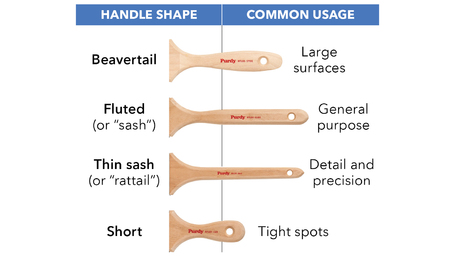Fuel pet[JOBSITE WORD] valve: turning engine off
On pressure washers there’s the ” ON – OFF” switch for the ignition and another one for the fuel line – just a pet[JOBSITE WORD] valve. So to run the washer, you’d have to have the ignition on “ON” and the fuel on “ON” or “RUN”. Now, I was trained in small aircraft that you ALWAYS shut the engine down by starving it of fuel or you’ll wreck the engine – and your wallet. Internal Cumbustion Engines are internal cumbustion engines regardless of the application.
So, am I correct? I ask this because so far, I’ve bought two pressure washers where the fuel valve is on regardless of its position.



















Replies
Two questions
#1 What type of combustion engine do you have in your truck?
#2 Where is the fuel shut off in your truck?
It's not a truck...
It's a power washer.
I was asking a general question. What is so bad about turning off an internal cumbustion engine by its magneto instead of by cutting of its fuel.
Actually, you can wreck an engine by starving it of fuel. This is known as "lean out" and is quite destructive of high-performance engines.
(What you do with that pet of yours is up to you, though.)
The valve is this kind of valve (https://secure.wikimedia.org/wikipedia/en/wiki/Pet%5BJOBSITE WORD]) for some reason the website edits out the latter half of the name. It's editing the link - think of another word for rooster - pet-rooster valve. Oy!
Anyway, this is just a one cyclinder lawmower engine on a pressure washer. And I was not refering to leaning the engine and still running it and ruining the engine. I was referring to shutting off the fuel completely, thereby burning what's left in the fuel lines until the engine stops. Then turing off the ignition.
I know what you were referring to (in both cases), and again, high-performance engines have been destroyed by running out of gas. The gas doesn't run out instantly, you know, but the fuel mixture gets leaner and leaner over a period of a few seconds. (You'll generally note that the engine speeds up slightly just before it stops, due to lean-out.)
FWIW
Shutting off the gas valve (to use a site permissible word) does lean the mixture down as it is running out of gas, just as if you're running the tank dry. But one thing to remember is the instructions for a lot of small engines suggest running them completely out of gas when you're not going to use them for some time.
The problem with running an engine too lean is that the combustion temperatures rise significantly. One of the functions of the gas, other than to burn, is to cool the fire. However, for just the few seconds required to dry out the fuel line, it wouldn't get that hot. On the other hand, one thing that can happen when the fuel is not run dry is that the gas remaining in the carb evaporates, leaving behind the varnish that can necessitate carb cleaning / rebuilding. So, there are a few tradeoffs each way.
That said, the only small engines that I ever shut the fuel off on was my motorcycles. That was because they would flood & leak if you didn't. I've seen some other small engines that have that problem, but that, in my mind, is a just a carb issue.
It's not just that the engine runs hotter -- detonation occurs, and in the wrong circumstances (a high-compression racing engine) that can cause near instantaneous damage. I've seen pistons from an engine damaged this way.
For a standard small engine, however (which is presumably not high-compression), the advantage of shutting off the fuel and running it dry is that it runs most of the fuel out of the carb, and fuel left in the carb tends to evaporate, leaving varnish behind. In an aircraft engine, which may have a reed style carb or something else different from the familiar bowl/venturi unit, there could be even more compelling reasons to run it dry.
But even though in the standard small engine case there are reasons to run the carb dry, no great harm occurs if you don't, especially if you intend to use the engine again in a few days. What you want to avoid is storing the engine for months with fuel in the carb (or in the tank, for that matter).
The auto-censor here can be as off base as dan's humour at times. You ever figure out how to get around it with spelling petc0ck?